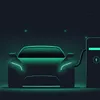Charging aggregator startup ElectricPe is powering the EV ecosystem
Bengaluru-based charging aggregator startup ElectricPe’s B2C app is a one-stop platform that lets users identify, access, and pay for EV charging points to make e-mobility easier.
Sales of electric cars are rising, but is the charging infrastructure keeping pace?
According to a recent KPMG report, global electric car sales soared by 116% from 2020 to reach 6.6 million in 2021, with the total number of electric vehicles (EVs) on the roads rising to 16.5 million in 2021.
By March 2022, the number of EVs on Indian roads had surpassed one million, and it is expected that an estimated 45-50 million EVs will ply on Indian roads by 2030.
The increasing number of EVs hitting the road necessitates increased and better charging infrastructure. But as of now, only about 1,700 public charging stations are operational across the country—extremely inadequate to support EV growth.
EV users face another challenge: knowing where the charging points are.
This is the problem Bengaluru-based charging aggregator platform aims to solve.
Founded in May 2021 by Avinash Sharma and Raghav Rohila, ElectricPe offers a B2C EV charging and demand generation app that is a one-stop platform where EV users can quickly identify, access, and pay for EV charging points to make e-mobility easier.
Avinash worked with Ola and Sun Mobility for over five years before launching ElectricPe, while Raghav had his own venture Xyloop and also worked in Ola.
The duo bootstrapped ElectricPe and in November 2021 the startup raised $3 million in a seed round led by Blume Ventures and Micelio Fund.

Tackling range anxiety
Speaking about what led to the idea of ElectricPe, Avinash says, “We knew that EVs were an eventuality and realised a couple of things from first principles.”
The first realisation was that the biggest roadblock when it came to making the switch to EVs was “range anxiety”.
Numerous studies have shown that driving range and lack of charging infrastructure are the primary reasons people do not consider EVs when buying a new vehicle. Range anxiety engulfs an EV user when the battery charge begins dropping, and charging points are few and far between. It sparks the fear of being stranded, adding time, inconvenience, and stress to journeys.
The issue of constantly taking into consideration of charge points to decide routes. While these days, products out there do provide a range of 120 km or more per single charge, there is still a constraint on lesser charge points.
Avinash adds that they also found that “numerous charging facilities—regular charging, fast charging, swapping, etc—were popping up across parking lots”.
In India, EVs are primarily charged in parking lots when they are not in use. However, each of these charging facilities has its own system apps, which translates into another problem. The EV user must download each app, in case they want to charge their vehicle at a point they don’t normally use.
Downloading various apps and lacking knowledge regarding the nearest charge point only adds to range anxiety, Avinash says.
“The last nuance that we learned about—and this is very specific to the Indian context—is that we are such a low-trust society,” Avinash says.
A classic example is when one takes a vehicle for refuelling, the first thing one does inadvertently is check the zeros before starting. This is done to ensure one does not pay more. The Indian consumer needs to be very sure that what they are paying for what they are using.
“From these points, we started ElectricPe. Our business model is simple: We are like the BookMyShow of EV charging. A person can use the ElectricPe app to find the nearest charge point, use and pay for using charging or swapping facilities of any kind—all in one single place,” Avinash says.

ElectricPe App
Monetising via partnerships
Avinash says the startup began with the clarity that it would be “a true ecosystem enabler, in the truest sense”.
“And while being a true ecosystem enabler and solving for the problem of range anxiety, we thought we will be able to figure out how do to monetise the business.”
ElectricPe is working to monetise via partnerships.
It has tied up with Hero Electric to set up charging points across India. This will allow Hero Electric customers to access ElectricPe’s charging network across residential complexes, offices, malls, and other establishments.
It also entered into a partnership with NoBroker, India’s first proptech unicorn to set up 100,000 electric charging points across NoBroker residential welfare societies (societies that have onboarded the NoBrokerHood society app), including apartments, gated communities, and standalone buildings.
ElectricPe has a tie-up with Electric One, an EV super stores chain, to provide robust charging infrastructure and encourage EV adoption. Through this alliance, Electric One customers across 82 stores in India will get access to ElectricPe’s EV platform.
Other partners include JSW Group, one of India's largest conglomerates, for which it will set up charging infrastructure in JSW offices and plant premises.
ElectricPe has already powered charging infrastructure at the JSW Mumbai headquarters. It will soon expand its services to JSW offices in Vasind, Dolvi, Vijayanagar, Sholtu, and Jharsuguda.
“By getting into all of these partnerships we're trying to address the needs of each of these ecosystem players,” Avinash says.
He adds that the business model is “solving for range anxiety, using an ecosystem play, and therefore being available at every touchpoint, where a consumer need solving for charging”.
ElectricPe also charges a commission from the consumer, which varies depending on kind of charge point operator, location, charger, availability, timing, etc.
The founder refused to share numbers, but said customers are charged per charge and there are various packages available based on customer needs.
“What we do is that we show the pricing per unit transparently of all nearby third-party charging/ swapping points and let the user take the decision. Only then do we invoice the user, based on precise actual units consumed,” the founder says.
ElectricPe also has plans to work with charge point operators and onboard their charge point in the app. The company plans to come out with this announcement on this by September end.
Apart from these partnerships, a request for charging points can also be made in the ElectricPe app. Based on the request, it would connect buyers with vendors the startup works with, charging a commission from the transaction.
Plans for the future
ElectricPe is operational in Bengaluru at present and offers 5,000 charge points across the city.
“We are very focused on one city, one market. We will continue to be in one market until we believe that we are able to solve for this market meaningfully,” Avinash says.
However, the startup has plans to expand to other cities by the end of this year.
How are the founders are choosing other markets is simple.
“We are looking at first principle data of where EV penetration is not just higher. We have started seeing that from different pockets in India, there are users who are requesting charging points. So we sort of have a heat map which helps us to take an informed decision of which should be our city,” he says on the decision to which city they will expand.
JMK Research in its 2021 report estimates that in the next 18 months, the total number of charging stations to be established by key players and startups will be around 7,000.
ElectricPe wants to be at the forefront of this growing opportunity.
Edited by Teja Lele









